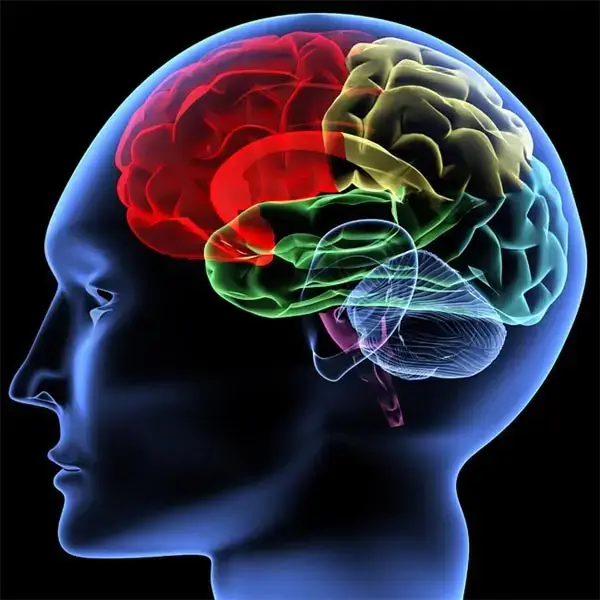The human brain, weighing a mere three pounds, is the most complex organ in the body. It is the command center of thoughts, emotions, memories, and decisions. Despite centuries of scientific exploration, the brain remains an enigma, with many of its mysteries still unsolved. This raises a profound question: Has science failed to unlock the secrets of the human brain? While remarkable strides have been made in neuroscience, the ultimate understanding of this intricate organ seems to elude us.
A History of Brain Exploration
The quest to understand the human brain dates back to ancient civilizations. Greek philosophers like Hippocrates and Aristotle debated whether the brain or the heart was the seat of intelligence. During the Renaissance, anatomical studies revealed the brain’s structure, but its function remained a mystery. Fast forward to the 19th and 20th centuries, breakthroughs like the discovery of neurons and the advent of brain imaging technologies revolutionized our understanding. Yet, despite these advancements, the deeper questions about consciousness, memory, and thought processes remain unanswered.
The Brain’s Infinite Complexity
The human brain contains approximately 86 billion neurons, each forming thousands of connections, creating a vast neural network. This complexity is both a marvel and a challenge. Scientists struggle to comprehend how electrical signals and chemical reactions translate into thoughts, emotions, and behaviors. Even with advanced tools like functional magnetic resonance imaging (fMRI) and electroencephalography (EEG), we can only observe brain activity indirectly. These methods provide valuable insights but fall short of revealing the complete picture.
The Mystery of Consciousness
One of the greatest challenges in neuroscience is understanding consciousness. How does the brain generate self-awareness? What gives rise to subjective experiences? These questions lie at the heart of the “hard problem of consciousness,” a term coined by philosopher David Chalmers. While neuroscience can identify brain regions associated with certain functions, it struggles to explain how these functions culminate in the experience of being “you.”
Even the most sophisticated artificial intelligence systems, which can mimic human behavior and perform complex tasks, lack consciousness. This highlights the gap between understanding brain mechanics and grasping the essence of awareness.
Memory
Memory is another domain where science has made progress but has yet to uncover the whole truth. We know that memories are stored in specific brain regions, like the hippocampus, and involve complex processes like encoding, storage, and retrieval. However, the precise mechanisms behind memory formation and recall remain elusive. Why do we forget some memories while others remain vivid for a lifetime? How do traumatic memories imprint themselves so deeply? These questions continue to baffle researchers.
The Limitless Complexity of Neural Networks
At its core, the brain consists of approximately 86 billion neurons, each forming thousands of connections called synapses. This results in trillions of potential neural pathways, creating a network so vast that it’s virtually impossible to map in its entirety. Traditional scientific methods thrive on isolating variables and observing outcomes, but the brain’s interconnected nature defies such reductionism. Every thought or action is the product of countless simultaneous processes, making it incredibly challenging to pinpoint exact mechanisms.
Emotional Intelligence and Mental Health
While we have identified the brain regions responsible for emotions, such as the amygdala and prefrontal cortex, understanding emotional intelligence and mental health disorders is still a work in progress. Conditions like depression, anxiety, and schizophrenia affect millions worldwide, yet their exact causes remain unclear. Treatments often focus on managing symptoms rather than addressing underlying issues, reflecting the limitations of our knowledge.
Technological Limitations
Despite the development of cutting-edge technologies, our tools for studying the brain are still relatively primitive. Brain imaging methods provide a macroscopic view but lack the resolution to examine neural activity at the cellular level in real time. Ethical concerns also limit invasive research on the human brain, making it difficult to conduct experiments that could provide deeper insights.
The Role of Interdisciplinary Research
Unlocking the mysteries of the human brain requires collaboration across disciplines. Neuroscience, psychology, philosophy, artificial intelligence, and even quantum physics have roles to play. However, the integration of these fields is fraught with challenges. Philosophical questions about free will, identity, and the mind-body connection often clash with the empirical focus of neuroscience. Bridging these gaps is essential for holistic progress.
What Lies Ahead?
While it may seem that science has “failed” to unlock the mysteries of the brain, it is more accurate to say that the journey is ongoing. Each discovery raises new questions, pushing the boundaries of what we know. Initiatives like the Human Brain Project and the BRAIN Initiative aim to map the brain in unprecedented detail, offering hope for breakthroughs in the coming decades.
Moreover, advancements in artificial intelligence and machine learning could revolutionize neuroscience. By simulating neural networks and analyzing massive datasets, AI might help us decode the brain’s intricate patterns. However, even these tools may face the same limitations as human researchers: the brain’s complexity is staggering.
The Quantum Conundrum
Some theories suggest that quantum mechanics might play a role in brain function. If true, this introduces a realm of unpredictability and non-locality that traditional neuroscience isn’t equipped to handle. The merger of quantum physics and biology is still in its infancy, and our current scientific paradigms might be insufficient to tackle these ideas comprehensively.
Ethical Boundaries
Ethical considerations significantly restrict the extent of experimental research on the human brain. Invasive studies that could offer deeper insights are limited by concerns over consent, potential harm, and moral implications. While these safeguards are necessary, they also mean that certain hypotheses remain untested, and some mysteries stay unsolved.
Summary
The human brain remains one of science’s greatest mysteries. While we have made significant progress in understanding its structure and functions, many fundamental questions remain unanswered. From the origins of consciousness to the mechanisms of memory and emotion, the brain continues to challenge our intellect and imagination.
Rather than viewing this as a failure, we should see it as a testament to the brain’s extraordinary nature. The journey to understand the human brain is not just a scientific endeavor but also a philosophical and existential quest. As we continue to explore, one thing is certain: the brain’s mysteries will inspire generations of scientists, thinkers, and dreamers to come.

















